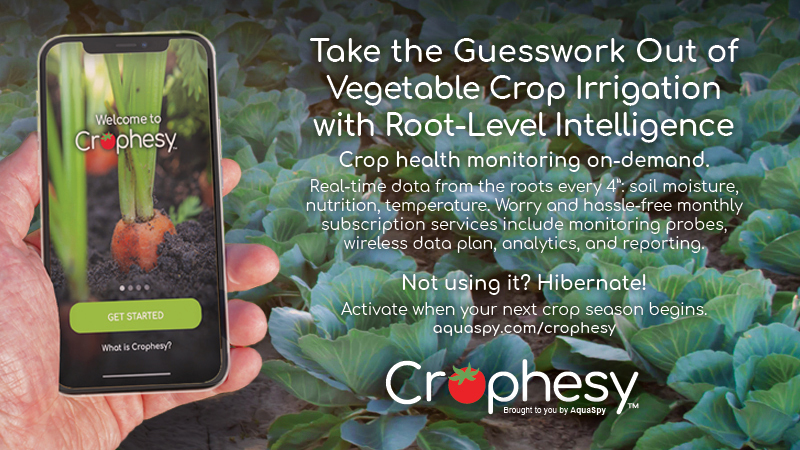Agriculture and Amara’s Law Grow Hand in Hand
In February, Orlando hosted the annual Commodity Classic — a huge show produced for the country’s commodity growers. Thousands of farmers from the Midwest and elsewhere flocked to Florida happy to find warmer climes.
It has become a tradition for Bayer to host its AgVocacy Forum in advance of the Classic. The event brings in agricultural trade media from across the country to offer a big-picture glimpse into global agriculture. This year’s subject was how technology advancements in our digital age and in science are and will be impacting the industry.
I was pleased that we’ve written a good deal about many of the topics discussed at the forum. But when it comes to emerging technologies, I always question the frequency in which we cover these topics in the magazine. After all, killing that troublesome weed that’s competing for yields in your fields is more of an immediate concern than a future robot with a hoe.
An interesting presentation by futurist Nikolas Badminton touched on this balance at the Bayer gathering. Badminton talked about a concept known as Amara’s Law. Coined by American scientist Roy Amara, it states: We tend to overestimate the effect of technology in the short run and underestimate the effect in the long run.
The sentence strikes you as contradictory, but when you dig into the law a little deeper, it suggests the initial phase of excitement over a technology is often followed by a period of disillusion before eventually becoming a part of and even revolutionizing everyday life.
Badminton noted that 50 years ago when the first personal computer was developed, no one dreamed they would eventually be in most everyone’s business, much less everyone’s home.
“Today, six billion people on this planet have a personal computer [a smartphone] that fits in their pocket,” he added.
So, where do we stand today on the Amara’s Law continuum?
I believe we are probably still in the early overestimation/hype stage. There are a lot of startup companies out there and mega corporations suddenly interested in agriculture making promises to change the world — heck, even save the world. Soon, we will enter into the disillusionment stage as technology developers fade away, or are absorbed by bigger players, as we grow impatient for the technology they promise. Then one day, we will wake up and it will seem as if overnight these innovative solutions are here, and we will wonder how we ever lived without them.
But, what do we do in the meantime? Badminton said to first be aware of what is happening around you in the realm of agricultural technology. Then, as it develops, be willing to experiment and trial technology in the fields.
In Florida, technology is being developed all around. Harvest CROO Robotics is creating a strawberry-picking robot, funded mostly by strawberry growers. Researchers at UF/IFAS are working with the gene-editing tool CRISPR to find solutions to major problems like citrus greening. Growers are trialing the PlantTape transplanter to greatly reduce labor required for planting. Farms are beginning to look at blockchain technology for traceability and food safety.
We’ve covered all these topics in the pages of Florida Grower magazine. Our parent company, Meister Media Worldwide, is leading the Global Precision Initiative to advance the cause of precision agriculture and digital farming around the world. Count on us to make you aware of these advancements and keep you informed through the experimentation and adoption stages of technologies that will revolutionize the way you farm and feed the world.










